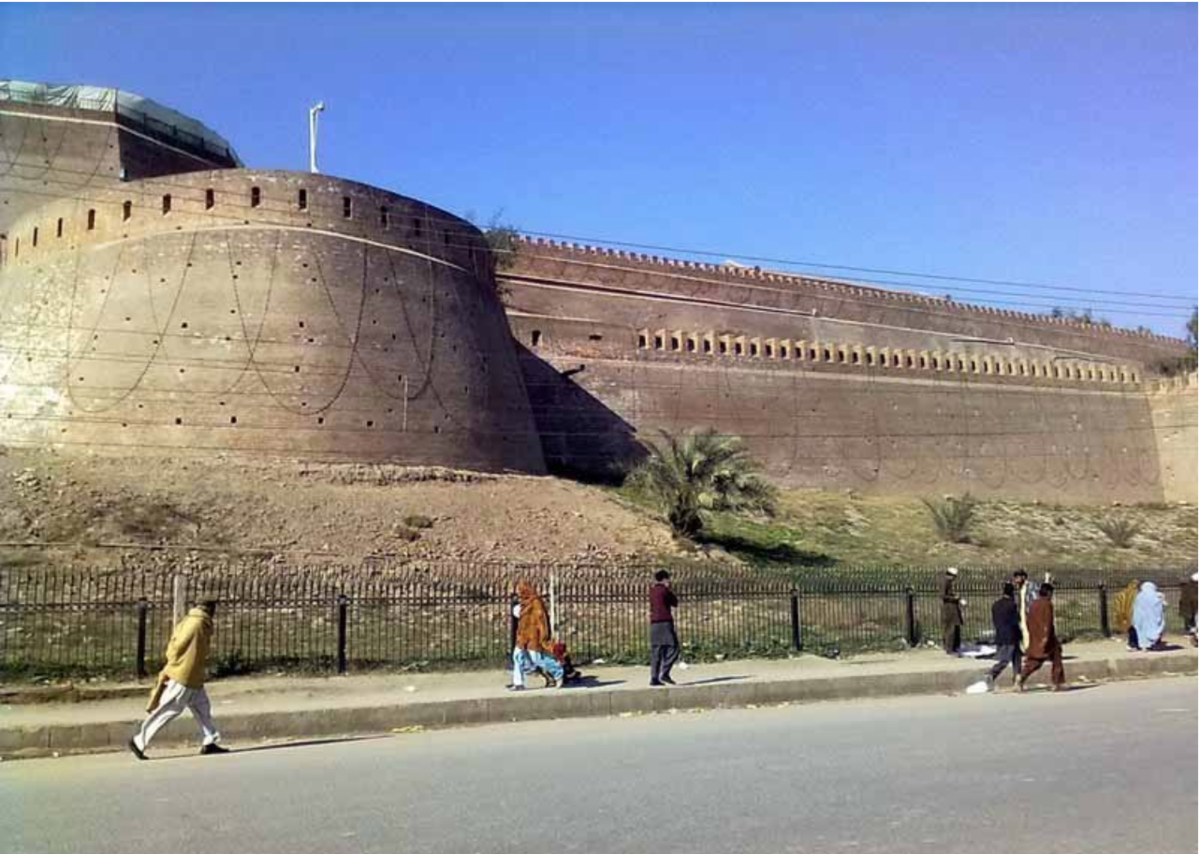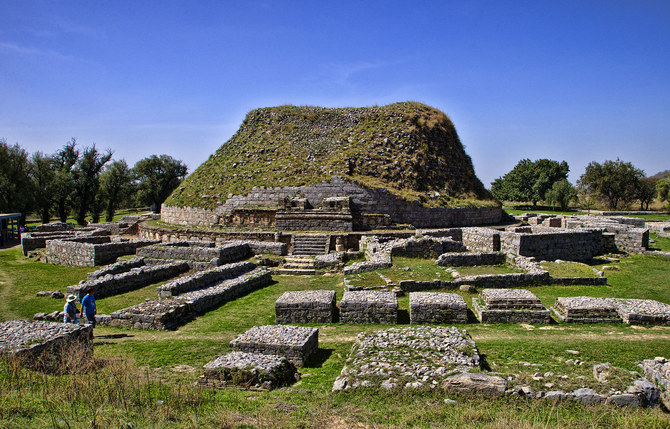Taxila
Taxila, which means “City of Cut Stone,” is an important archaeological site located in Pakistan’s Punjab province, around 32 km north-west of the capital city of Islamabad. The origins of some of the sites in the city date back to 1000 BC. Must see spots include the Dharmarajika Stupa, also referred to as the Great Stupa of Taxila, a stone structure where fragments of Buddha’s bones are said to be buried. Other popular stupas include the Kunala, Lalchak and Badalpur, Mohra Moradu, Pippala and Jaulian. Many of the sites are free to visit while a few have entry fees of less than ten dollars. Taxila was declared a UNESCO World Heritage Site in 1990.
In a 2010 report, Global Heritage Fund identified Taxila as one of 12 worldwide sites most “On the Verge” of irreparable loss and damage, citing insufficient management, development pressure, looting, and war and conflict as primary threats.

Taxila is home to the Dharmarajika stupa, where it is said fragments of Buddha’s bones have been buried. Photo taken December 12, 2015 (Courtesy Wikipedia)

Stone carvings seen at the protected site of Taxila on March 15, 20110 (Courtesy Wikipedia)
Swat Valley
Pakistan was last a prominent tourist destination in the 1970s when the “hippie trail” brought Western travelers through the apricot and walnut orchards of the Swat Valley on their way to India and Nepal. But the history of the valley goes back to around 2000 years ago when it was known as Udyana, a name later changed to Suvastu. Historical sites in the area include the “Rock Art Of Barikot” which can be found spread through Mansehra, Parlai Dab and Khanpur-Shikoli regions of Swat. The city of Barikot is mentioned in historical tellings from the time Alexander the Great conquered the area around 327 BC. Other remnants of his time include the town of Udegram. The rock art includes the Buddhist stupas of Butkara, Shengerdar and Nimogram Stupas, rock formations and caves and the Amluk-Dara Stupa, a significant Buddhist-era site dating back to 1400 BC.

The Barikot Ghundai Hill in Swat Valley is home to some of the country’s oldest historical ruins. Photographed on February 12, 2012 (Courtesy Wikipedia)
Lahore
Every Pakistani you meet will remind you of the old adage that if you haven’t been to Lahore you haven’t lived. The historical sites are too many to name: The incredible Mughal buildings of the Lahore Fort and the Badshahi mosque, one of the world’s largest mosques, the Shalimar Gardens, Jehangir’s Tomb and the colorful Wazir Khan Masjid — to name just a few.

The iconic entrance to the Lahore Fort in Lahore’s Old City as see on October 22, 2011 (Courtesy Wikipedia)
Karachi
Karachi, once the prehistoric abode of Sindhi fishermen, is now a roaring urban metropolis that sustains the country with its ports. But the city has some incredible historical sites to offer also. Visit the 20th century Rajhastani style Mohatta Palace built by a Hindu Prince in 1925 and used today as an art gallery and museum; drop in at the Quaid-e-Azam House to look into the life and times of the country’s founding father; or check out the Frere Hall building which recalls the time when Pakistan was a part of the Indian British colony and serves as a library and art gallery today. Also pay a visit to the The Chaukhandi Tombs, an ancient graveyard and UNESCO World Heritage Site whose origins are estimated to range between the 15th and 18th century. Aso worth checking out are the ruins of the city of Bhambore which dates back to the 1st century BC and was constructed during the Scytho-Parthian era.

The Makli Necropolis sits on the outskirts of the city of Thatta and encompasses a number of monuments and tombs bearing details from 14th and 18th century artisans from tile mosaics to Qur’anic art. Photograph: August 24, 2011 (Courtesy Wikipedia)

Stone pillars with carvings line a walkway in the Makli Necropolis in Pakistan’s Sindh province. Photograph: May 24, 2015. (Courtesy Wikipedia)
Peshawar
Peshawar too has a number of historical sites to offer. The 17th century Mughal-era mosque Masjid Mahabat Khan and the floating gardens of Wazir Bagh built in the 18th century can all be found in this ancient city. The most impressive sites however are the forts. Built in 1836 by General Hari Singh Nalwa after the Sikhs had won the area from the Afghans, Jamrud Fort was a battleground between Sikh and Afghan forces in the 1800’s while Fort Bala Hisar is one of the oldest and (criminally underrated) landmarks in the city.

Fort Bala Hisar is a massive fort that stands in Peshawar, Pakistan. Photograph February 5, 2019 (Courtesy Blogspot)
















